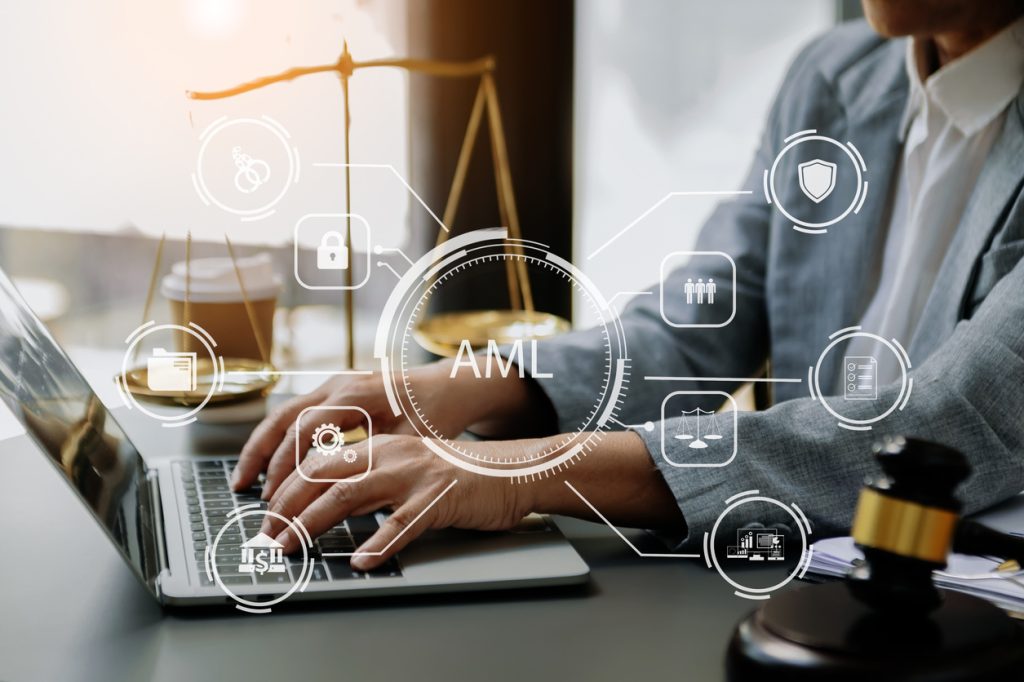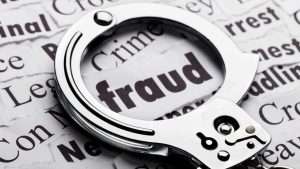The Financial Action Task Force, an inter-governmental organisation set up to combat money laundering, has described lawyers as the potential gatekeepers to money laundering.
Today, governments around the world are cracking down on money laundering and the legal sector is facing tougher regulations as a result.
Anti-money laundering checks are a necessary tool in the fight against money laundering and allow lawyers to remain compliant with regulations, whilst also protecting themselves from exploitation by criminals.
In this article, we will look at the legal sector’s anti-money laundering responsibilities, the threat posed by money laundering to the legal sector, methods that can be used to exploit, and how Anti Money Laundering helps prevent financial crime.
The Legal Sector’s responsibilities
Anti-money laundering regulations place the bulk of responsibility on the private sector and, in some cases, are vague in their instructions. Whilst these regulations are spread across multiple Acts, there are two which are most significant. First, the Proceeds of Crime Act 2002 (POCA), amongst other things, dictates that the legal sector is subject to AML regulations. Second, the Money Laundering, Terrorist Financing, and Transfer of Funds (Information on the Payer) Regulations 2017 (MLR 2017) define the responsibilities of those who are bound by AML regulations.
Chief amongst these is adopting a risk-based approach. This means that a company must assess and understand the money laundering and terrorism financing threats that they face and take the appropriate actions to mitigate that danger.
Not only does this place responsibility onto the private sector but requires a huge amount of knowledge and expertise on the theory and practice of money laundering to enact and maintain successfully.
The Threat of Money Laundering
Until recently, the extent that money laundering pervaded economies was not widely known; therefore, appropriate regulations to counter it were not in place. Under these conditions, the money laundering industry thrived. It is now estimated that roughly £1.67 trillion of dirty money is laundered globally every year, generally flowing towards the more stable and established Western economies.
In the UK, £88 billion is laundered every year, which the National Crime Agency estimates costs the economy £100 billion in the same amount of time. This puts the UK as the second most exploited economy in the world, second only to the USA. But after years of lax regulations and incentives to attract international money, London is widely considered to be the preeminent city worldwide for money laundering.
This has led the UK government to implement a slew of legislation aimed at curtailing money laundering, including harsh punishments on those companies found to be non-compliant. Whilst these laws are designed to frustrate and prevent money laundering and help companies identify when they are being targeted, they do not currently reduce the threat of being exploited that companies face.
This is because regulations, in and of themselves, do nothing to reduce the need for criminals to ‘wash’ dirty money. Don't forget, money launderers are professional criminals who are sophisticated in how they enact laundering schemes and deceive the professionals that they exploit.
How money launderers exploit the legal profession
The Financial Action Task Force stated that; "lawyers are vulnerable to complex money laundering schemes due to their ability to easily switch between advising on financial and fiscal matters, establishing trusts and corporate entities and completing property and other financial transactions, such as investments". Money launders also employ the services of lawyers to add a veneer of legitimacy when carrying out laundering schemes.
Whilst money laundering schemes are diverse and ever-changing, they are all made of the three same steps:
- Placement – Entering the physical ill-gotten gains into the banking system; effectively turning it into digital money.
- Layering – A complex series of transactions designed to obfuscate the source of the funds. The more steps in the series the better and these will generally involve multiple cross-border transactions, especially in countries with low banking regulation.
- Integration – At this stage, the money is effectively ‘clean’ and is placed into bank accounts or used to purchase assets.
Lawyers are usually exploited as part of the layering step, with conveyancers and trust and company services providers (TCSPs) being disproportionately targeted.
TCSPs can provide money launderers with a range of services. Two of the most frequently used are the creation of complicated corporate structures, that are used to transfer illicit funds and hide both their source and the ultimate beneficial owner, and to purchase investments on their behalf. Services such as mail forwarding and virtual offices also help money launders add the appearance of legitimacy to their schemes.
Conveyancers are exploited as the purchase and sale of property is a popular method of laundering money. Frequently money laundering schemes will involve the purchase and quick sale of property, usually between corporate entities, where the buyer and seller are the same person. Property is also a popular method of storing wealth once cleaned and thus can be part of the placement stage of money laundering.
Money launderers also seek to abuse legal practices and client accounts wherever possible, as by transferring money into and out of them the audit chain is broken.
It is important to note that professional money launderers are good at what they do and will appear as legitimate businesspeople or upstanding citizens and can exploit any number of services offered by the legal profession.
How AML checks help lawyers
As we have seen, being exploited by a money laundering scheme is a pervasive and constant threat to the legal profession. Being found to have aided money laundering, even unknowingly, comes with harsh sanctions in the UK, including fines, professional disqualification, and jail time. Unfortunately, spotting these money laundering schemes is difficult. The law assumes and requires that staff have sufficient training, equipment, and expertise to do so.
By performing AML checks, via AML check software, lawyers can run detailed background checks on any potential business partners which can form the basis of an individual risk assessment.
In an AML check, the subject will submit a copy of an ID document (usually a passport) and their address The AML check software will then:
- Run the ID document details through the appropriate country’s database to confirm it is genuine.
- Confirm the address provided by the subject is genuine and that they are registered as living there.
- Run the subject’s name through international law enforcement agencies' databases for any links to organised crime, money laundering, or terrorism, be it direct or via an associate.
- Some AML check software allows the subject to take a photo of themselves on their device and the software uses biometric technology to confirm identity.
This allows a practitioner to quickly confirm both the identity of an individual and if that person has any conviction or link to criminal activity anywhere in the world. This process would be impossible to do manually and by including a step in your risk assessment that has the human element removed it severely impedes money launderer’s ability to con.
AML checking software is also able to run an individual against the list of domestic and international sanctions and confirm if a person is politically exposed. This ability has become extremely important to legal professionals since the Ukraine invasion as the international appetite to use sanctions against individuals as a political punitive measure has increased. Being found to have dealings with such an individual would at the very least cause severe reputational damage.
It is important to note that human intuition, training, and professional knowledge form the foundation of a risk-based approach. But by performing AML checks, lawyers are not only greatly empowered in identifying criminal individuals seeking to exploit their services, but also are protecting themselves against potential prosecution for being in breach of AML regulations.





















